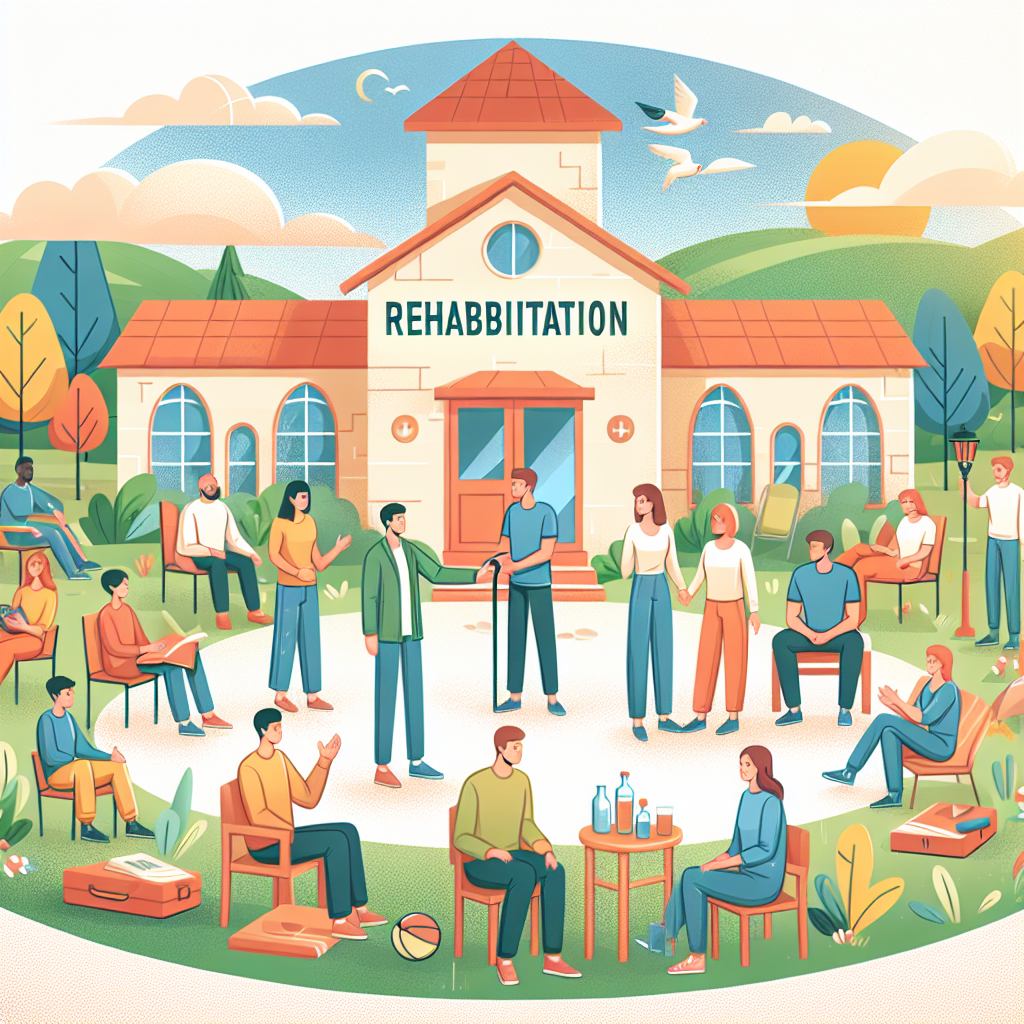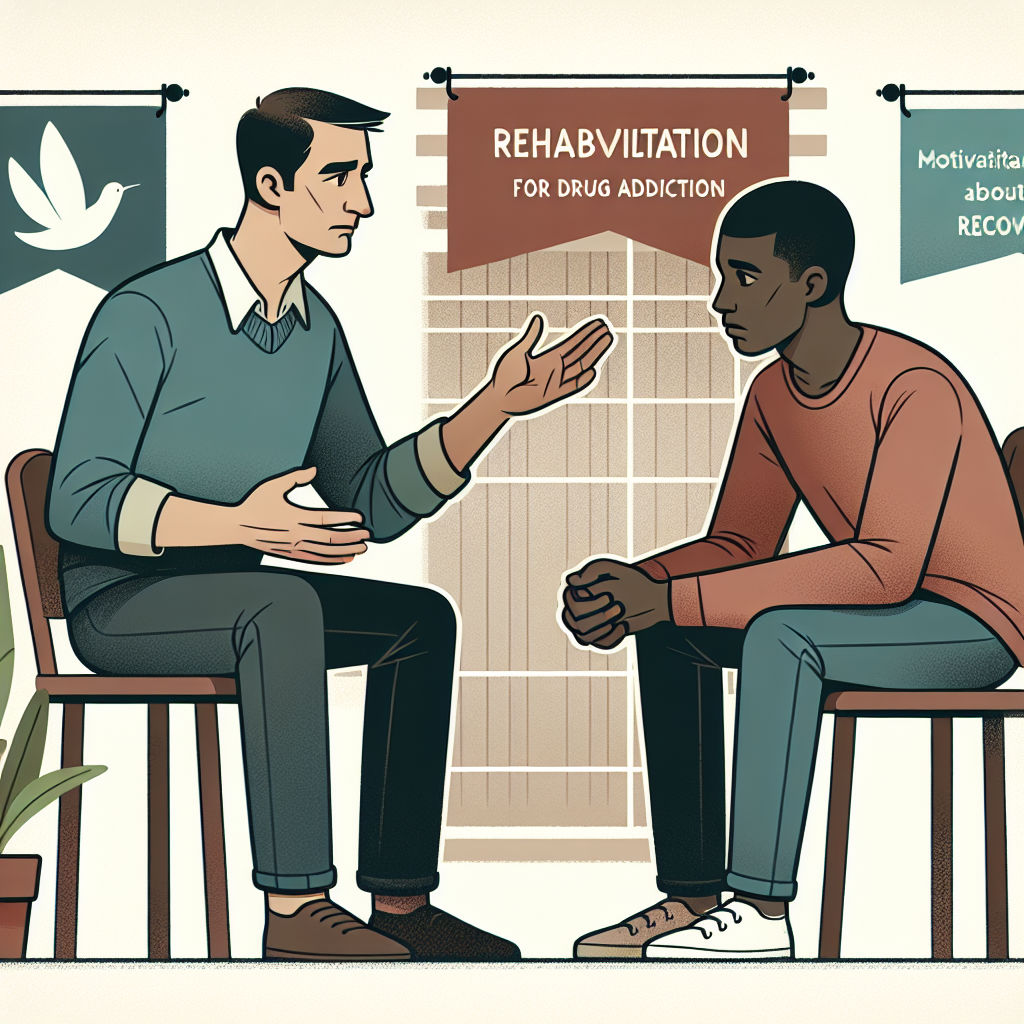-
Table of Contents

“Empowering Futures: Transforming Young Lives Through Effective Alcohol Rehab”
Introduction
The success rates of rehabilitation programs for young adults with alcohol dependency are a critical measure of the effectiveness of these interventions. Alcohol dependency among young adults is a significant public health concern, often leading to severe physical, psychological, and social consequences. Rehabilitation programs, which may include a combination of medical treatment, counseling, and support groups, aim to help individuals achieve and maintain sobriety. Evaluating the success rates of these programs involves examining various factors such as the duration of sobriety post-treatment, relapse rates, and improvements in overall quality of life. Understanding these success rates is essential for developing more effective treatment strategies and providing better support for young adults struggling with alcohol dependency.
Factors Influencing the Success Rates of Rehab for Young Adults with Alcohol Dependency
The success rates of rehab for young adults with alcohol dependency are influenced by a myriad of factors, each playing a crucial role in the journey towards recovery. Understanding these factors can provide valuable insights and inspire hope for those embarking on the path to sobriety. One of the most significant elements is the type of treatment program chosen. Evidence-based treatments, such as cognitive-behavioral therapy (CBT) and motivational interviewing, have been shown to be particularly effective. These approaches help young adults understand the underlying causes of their dependency and develop healthier coping mechanisms.
Another critical factor is the level of support available to the individual. Family involvement and a strong support network can significantly enhance the chances of successful rehabilitation. When young adults feel supported and understood by their loved ones, they are more likely to stay committed to their recovery journey. Additionally, peer support groups, such as Alcoholics Anonymous (AA), provide a sense of community and shared experience that can be incredibly motivating.
The environment in which treatment takes place also plays a pivotal role. Residential rehab programs offer a structured and controlled setting, free from the triggers and temptations of everyday life. This can be particularly beneficial for young adults who may struggle with self-discipline and are easily influenced by their surroundings. On the other hand, outpatient programs offer flexibility and allow individuals to maintain their daily responsibilities, which can be advantageous for those who have strong support systems at home.
Moreover, the duration of the treatment program can impact success rates. Longer programs, typically lasting 90 days or more, have been associated with higher success rates. This extended period allows for a more comprehensive approach to treatment, addressing not only the physical aspects of dependency but also the psychological and emotional components. It provides ample time for individuals to develop and practice new skills, making them better equipped to handle life post-rehab.
The presence of co-occurring mental health disorders is another factor that can influence rehab success. Many young adults with alcohol dependency also struggle with conditions such as depression, anxiety, or trauma. Integrated treatment programs that address both substance use and mental health issues simultaneously tend to yield better outcomes. This holistic approach ensures that all aspects of an individual’s well-being are considered, leading to more sustainable recovery.
Personal motivation and readiness to change are also crucial determinants of success. Young adults who enter rehab with a genuine desire to overcome their dependency and a willingness to engage fully in the treatment process are more likely to achieve positive outcomes. This intrinsic motivation can be bolstered by motivational enhancement therapy, which helps individuals resolve ambivalence and commit to change.
Lastly, post-rehab support and aftercare are essential for maintaining sobriety. Relapse prevention strategies, ongoing counseling, and continued participation in support groups can help young adults navigate the challenges of life after rehab. These resources provide a safety net, reducing the risk of relapse and promoting long-term recovery.
In conclusion, the success rates of rehab for young adults with alcohol dependency are influenced by a combination of treatment type, support systems, environment, program duration, co-occurring mental health disorders, personal motivation, and aftercare. By addressing these factors comprehensively, young adults can be empowered to overcome their dependency and build a healthier, more fulfilling future. The journey may be challenging, but with the right support and resources, recovery is not only possible but achievable.
Comparing Success Rates of Different Rehab Programs for Young Adults with Alcohol Dependency
When it comes to addressing alcohol dependency among young adults, the success rates of various rehabilitation programs can vary significantly. Understanding these differences is crucial for making informed decisions about treatment options. The journey to recovery is often fraught with challenges, but the right program can make a substantial difference in achieving long-term sobriety. By comparing the success rates of different rehab programs, we can gain valuable insights into what works best for young adults struggling with alcohol dependency.
One of the most widely recognized types of rehab programs is the inpatient or residential treatment program. These programs typically offer a structured environment where young adults can focus entirely on their recovery without the distractions and temptations of everyday life. Success rates for inpatient programs are generally higher compared to outpatient programs, largely due to the intensive nature of the treatment and the constant support provided by healthcare professionals. Studies have shown that young adults who complete inpatient rehab programs have a higher likelihood of maintaining sobriety for extended periods, often because these programs address not only the physical aspects of addiction but also the psychological and emotional factors.
On the other hand, outpatient rehab programs offer a more flexible approach, allowing individuals to continue with their daily responsibilities while attending treatment sessions. While the success rates for outpatient programs may not be as high as those for inpatient programs, they still offer significant benefits, particularly for young adults who have strong support systems at home or work. Outpatient programs often include counseling, group therapy, and educational sessions, which can be highly effective when combined with a committed personal effort. The key to success in outpatient programs often lies in the individual’s ability to stay motivated and adhere to the treatment plan despite the less controlled environment.
Another important factor to consider is the role of specialized rehab programs tailored specifically for young adults. These programs recognize that young adults face unique challenges and stressors that can contribute to alcohol dependency. By focusing on age-specific issues, such as peer pressure, academic stress, and the transition to adulthood, these programs can offer more relevant support and guidance. Research indicates that young adults who participate in specialized rehab programs often experience higher success rates compared to those in general rehab programs. The sense of camaraderie and understanding among peers in similar life stages can be incredibly empowering and motivating.
Moreover, the incorporation of holistic approaches in rehab programs has shown promising results. Holistic rehab programs emphasize the importance of treating the whole person, not just the addiction. This can include activities such as yoga, meditation, art therapy, and nutritional counseling. By addressing the physical, mental, and spiritual aspects of recovery, holistic programs can help young adults develop healthier coping mechanisms and a more balanced lifestyle. Success rates for holistic rehab programs are often higher because they promote overall well-being and personal growth, which are essential for sustaining long-term sobriety.
In conclusion, while the success rates of rehab programs for young adults with alcohol dependency can vary, the most effective programs tend to be those that offer comprehensive, individualized care. Inpatient programs generally boast higher success rates due to their intensive nature, while outpatient programs can be effective with strong personal commitment and support. Specialized programs for young adults and holistic approaches also show great promise in achieving lasting recovery. Ultimately, the journey to sobriety is deeply personal, and finding the right program can make all the difference in transforming lives and fostering hope for a brighter, alcohol-free future.
Q&A
1. **Question:** What is the average success rate of rehab programs for young adults with alcohol dependency?
**Answer:** The average success rate of rehab programs for young adults with alcohol dependency varies, but studies suggest that approximately 40-60% of individuals maintain sobriety for at least one year after completing a rehab program.
2. **Question:** What factors influence the success rates of rehab for young adults with alcohol dependency?
**Answer:** Factors influencing the success rates include the quality and type of treatment program, the duration of the rehab stay, the level of family and social support, the presence of co-occurring mental health disorders, and the individual’s commitment to recovery.
Conclusion
The success rates of rehab for young adults with alcohol dependency vary widely depending on several factors, including the type of treatment program, the duration of treatment, the individual’s level of commitment, and the presence of co-occurring mental health disorders. Generally, comprehensive and individualized treatment programs that include medical detoxification, behavioral therapy, and aftercare support tend to have higher success rates. Studies suggest that young adults who complete a full course of treatment and engage in ongoing support and counseling are more likely to achieve long-term sobriety. However, relapse is common, and continuous support and monitoring are crucial for sustained recovery. Overall, while rehab can be effective, the success of treatment largely depends on the individual’s engagement and the quality of the rehab program.



